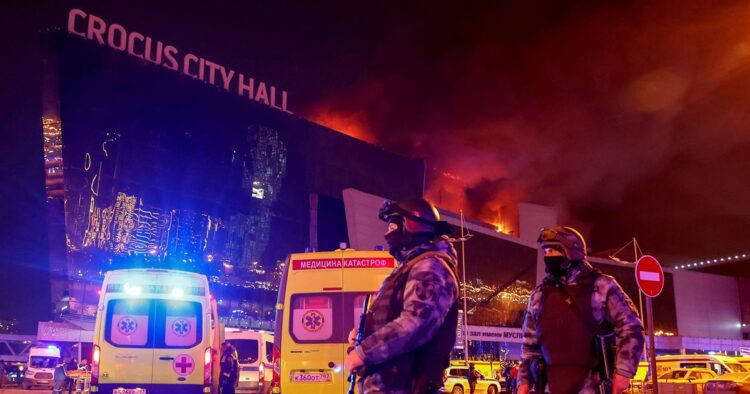Last Friday’s tragic attack at a concert hall in Moscow, claiming the lives of over 143 people, took a new turn as it emerged that the assailants, Tajikistan men, had briefly visited Turkey earlier in the same week. They reportedly went to renew their Russian residence permits, according to a Turkish security official speaking to Reuters. However, the official clarified that the radicalization of these individuals did not occur during their time in Turkey.
The source, speaking anonymously to the news agency, revealed that there were no existing arrest warrants against the attackers, enabling them to freely travel between Turkey and Russia. It was further disclosed that the assailants had been residing in Moscow for an extended period leading up to the attack. Two of the attackers returned to Moscow from Turkey on March 2, 2024, on the same flight.
The attack, which was later claimed by the Islamic State, shook the nation and left dozens more injured. In connection with the assault at Crocus City Hall in Moscow, eleven individuals have been detained for questioning.
Putin Refrains from Acknowledging IS Role in Moscow Attack
Russian President Vladimir Putin is reportedly reluctant to attribute the Moscow attack to the Islamic State (IS), despite the extremist group’s claim of responsibility. Instead, Putin has suggested a connection to Ukraine, posing questions about why the assailants attempted to flee to Ukraine after the attack—a claim disputed by Kyiv.
In recent remarks regarding the assault, Putin acknowledged the involvement of “radical Islamists” but emphasized a linkage to Ukraine. He questioned why the perpetrators sought refuge in Ukraine after committing the crime, insinuating a broader conspiracy.
Putin’s stance on the attack has stirred controversy, with Ukraine vehemently denying any involvement. Ukrainian President Volodymyr Zelensky accused Putin of consistently attempting to shift blame onto others, rejecting any connection to the tragic incident.
Despite Putin’s assertions, the international community remains vigilant in unraveling the complexities surrounding the Moscow concert hall attack, striving to identify not only the perpetrators but also the mastermind behind the heinous act.

















Comments